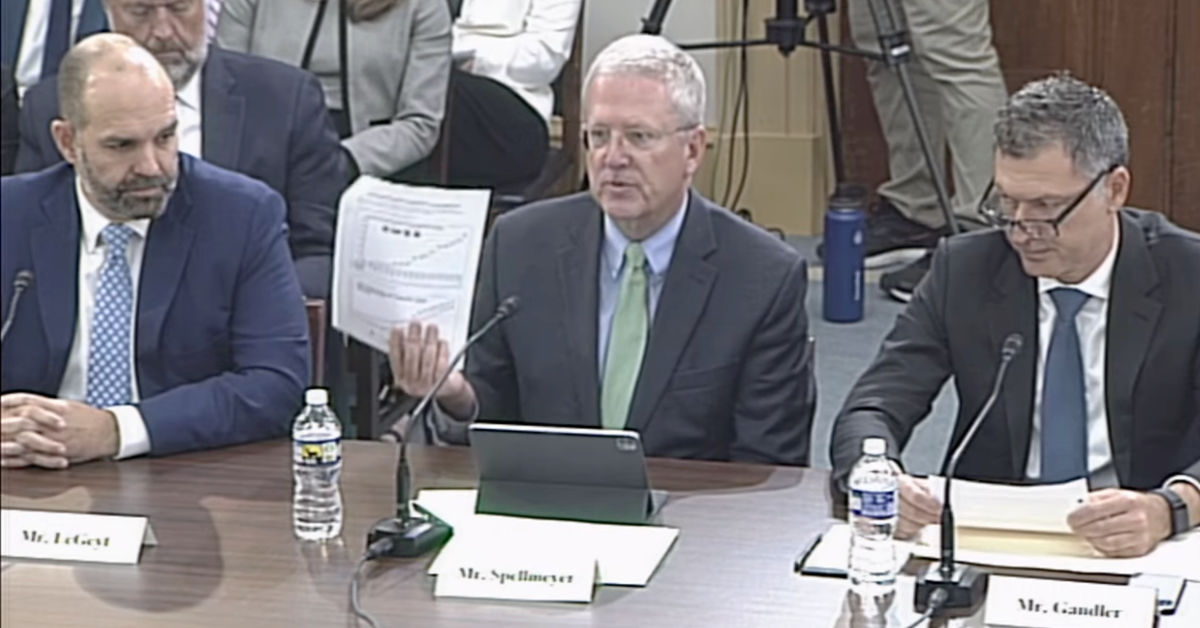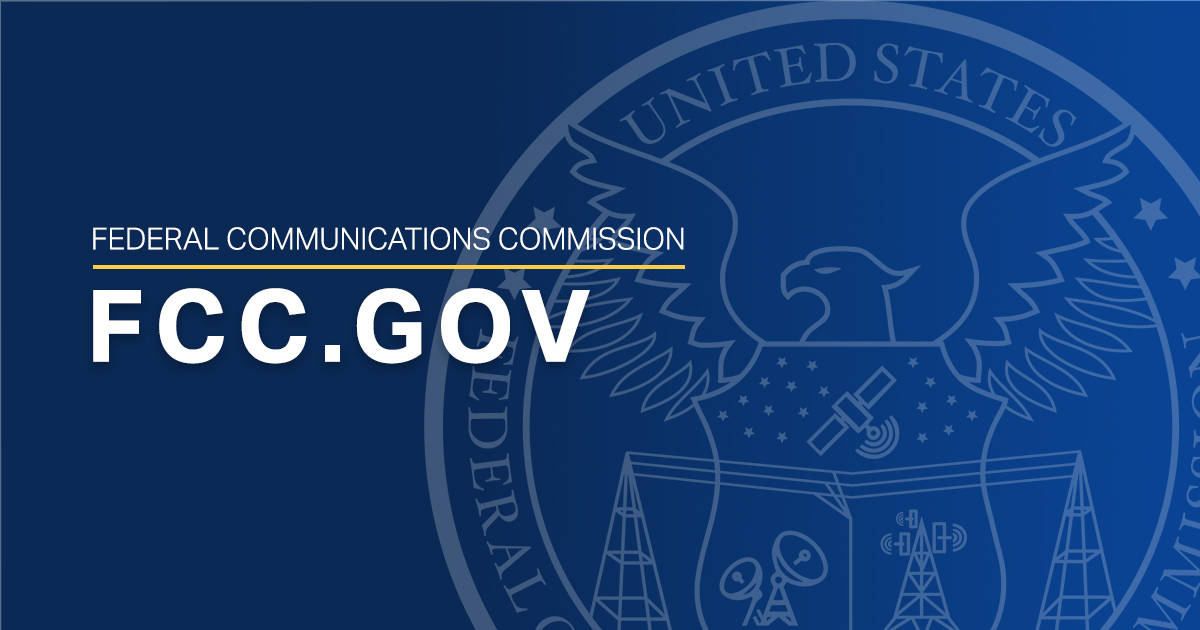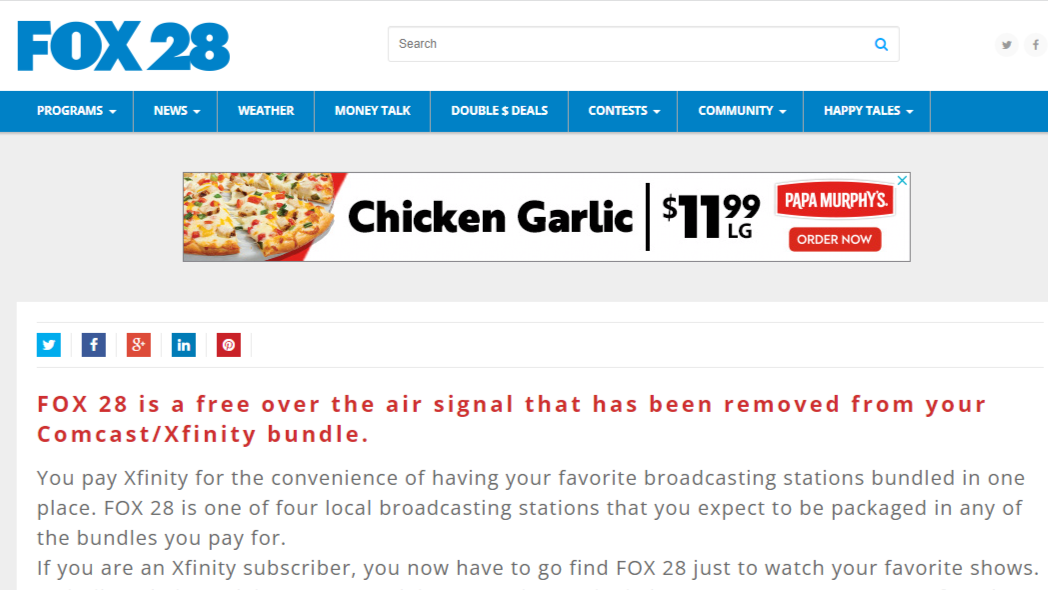Must have been before I signed with them. I get my hockey fix on ESPN+ anyway.NHL Network also was dumped by YouTube TV a couple of years ago. Guess they must not consider MLB and NHL fans as valuable to the YTTV business model as NFL and NBA fans.
-
Get involved.
We want your input!
Apply for Membership and join the conversations about everything related to broadcasting.
After we receive your registration, a moderator will review it. After your registration is approved, you will be permitted to post.
If you use a disposable or false email address, your registration will be rejected.
After your membership is approved, please take a minute to tell us a little bit about yourself.
https://www.radiodiscussions.com/forums/introduce-yourself.1088/
Thanks in advance and have fun!
RadioDiscussions Administrators
You are using an out of date browser. It may not display this or other websites correctly.
You should upgrade or use an alternative browser.
You should upgrade or use an alternative browser.
The Programming Disputes Thread
- Thread starter mvcg66b3r
- Start date
Why?I'm not sure whether it's a sports bar but a restaurant near where I live has an insulting message for Spectrum.
Pretty sure it's related to ESPN being off Spectrum.Why?
I know you have avoided watching ESPN for as long as it's been on the air, but surely you must comprehend its importance to the fans of the sports it telecasts. Not having ESPN available in a bar when NFL, MLB, NBA and (in hockey hotbeds) NHL games, along with big time college sports ticks sports fans off, and ticks off the owners of those bars where fans gather to watch them even more, because not having the games the customers want costs them business. It might not be sophisticated -- or have an equivalent in the Latin American cultures you're more familiar live -- but an "FU" to the cable company isn't a bad idea for a bar operator looking to show sympathy for the customers' frustration and tell them "Hey, we hate Spectrum too!"Why?
Do these conflicts between programming sources and cable companies happen in Ecuador, Mexico, etc., or is this a purely American phenomenon?
I'm surprised no one mentioned it here ...

 www.latimes.com
www.latimes.com

Disney and Charter end blackout, returning ESPN and ABC to Spectrum TV
The blackout ended Monday with a new distribution deal, hours before the New York Jets-Buffalo Bills 'Monday Night Football' game on ESPN.
Our long national nightmare is over!I'm surprised no one mentioned it here ...

Disney and Charter end blackout, returning ESPN and ABC to Spectrum TV
The blackout ended Monday with a new distribution deal, hours before the New York Jets-Buffalo Bills 'Monday Night Football' game on ESPN.www.latimes.com
Nobody has mentioned how much of a price increase is involved.I'm surprised no one mentioned it here ...

Disney and Charter end blackout, returning ESPN and ABC to Spectrum TV
The blackout ended Monday with a new distribution deal, hours before the New York Jets-Buffalo Bills 'Monday Night Football' game on ESPN.www.latimes.com
so how are Spectrum customers supposed to watch the yearly 700 Club begathon? or did they stop watching when Pat Robertson retired?
in retransmission disputes, there are no winners, only losers.Nobody has mentioned how much of a price increase is involved.
the media companies that pulled the content: they lose money over the dispute to demand for more money.
The paid tv providers: the loss of costumers who leave the provider for another over said dispute.
both: caving to end the disputed as soon as possible with a resolution, giving in to one another's side.
the customers: they will be paying for the rate hikes that comes with a resolved disputed.
so nobody wins here.

Lawmakers express frustration over blackouts, fee hikes during hearing on streaming TV’s future
Federal lawmakers this week expressed their frustration over rising cable and satellite television prices and numerous programming blackouts that have resulted in many of their constituents losing | During a three-hour House Committee hearing, industry stakeholders including Fubo, NAB, and ACA...
Here is more on the contract disputes.

Editorial: FCC Proposal to End TV Blackouts Is Full of Favoritism & Fecklessness
EDITORIAL FCC Chairwoman Jessica Rosenworcel yesterday announced two rule proposals designed to “empower” consumers during channel blackouts caused by carriage disputes between TV provi…
 tvanswerman.com
tvanswerman.com

Chairwoman Shares Proposals to Empower Consumers During TV Blackouts
Proposals Would Seek Comment on Rebates for Consumers and Commission Notifications of Blackouts
There is a proposal to reduce TV blackouts at the FCC but thats subject to change.

Comcast, Imagicomm Resolve Month-Long Retrans Blackout
Agreement resorts stations in Memphis and Spokane
 www.nexttv.com
www.nexttv.com
Comcast ends a dispute with ImagiComm the owner of WHBQ Memphis.
No Longer Available
Hearst Television is in a dispute with Dish Network.
No Longer Available
www.kcra.com
Hearst Television is in a dispute with Dish Network.
That happened a week after Disney went dark on Charter Spectrum almost 2 months ago. Dish is the worse in disputes they haven't had Mission for over a year just like AT&T & DIRECTV.
WBNS Channel 10 Columbus, Ohio ran a scrolling message during a football game this afternoon announcing that Direct TV and AT&T Uverse may no longer carry WBNS after 8:00 P.M. on November 30 if an agreement cannot be reached to carry WBNS.
And since WBNS is owned by Tegna, the dispute between Direct TV and AT&T Uverse may also affect other Tegna owned television stations nationwide.
And since WBNS is owned by Tegna, the dispute between Direct TV and AT&T Uverse may also affect other Tegna owned television stations nationwide.
I get that, but did not get the issue in that particular post as it lacked context.I know you have avoided watching ESPN for as long as it's been on the air, but surely you must comprehend its importance to the fans of the sports it telecasts.
It depends on the country. And, of course, most countries only have one significant spot, soccer. While there is limited and declining local interest in baseball in the Greater Antilles, Northern Mexico, Nicaragua and parts of Venezuela and rugby in Argentina.Not having ESPN available in a bar when NFL, MLB, NBA and (in hockey hotbeds) NHL games, along with big time college sports ticks sports fans off, and ticks off the owners of those bars where fans gather to watch them even more, because not having the games the customers want costs them business. It might not be sophisticated -- or have an equivalent in the Latin American cultures you're more familiar live -- but an "FU" to the cable company isn't a bad idea for a bar operator looking to show sympathy for the customers' frustration and tell them "Hey, we hate Spectrum too!"
Do these conflicts between programming sources and cable companies happen in Ecuador, Mexico, etc., or is this a purely American phenomenon?
In Mexico, the major TV group even owns the largest stadium and one of the teams. In other nations, the pro teams are far less commercialized and some even have volunteer management. In general, due to society and due to economy, sports is not as totally profit driven.
Part of this is the economy and consumer income. The minimum daily wage in Mexico is just over $9 or less than 10% of the minimum wage in U.S. states like California. This means less money for tickets, less for rights payments, less for players. This is why the best players from Latin America join European teams... and the best player in the world plays in the US now.
KPNX Phoenix is displaying the same message on its website. I have to ass-u-me that all Tegna stations would be shut off.And since WBNS is owned by Tegna, the dispute between Direct TV and AT&T Uverse may also affect other Tegna owned television stations nationwide.
Yup. I’m seeing the scroll here in Hartford during football.KPNX Phoenix is displaying the same message on its website. I have to ass-u-me that all Tegna stations would be shut off.

